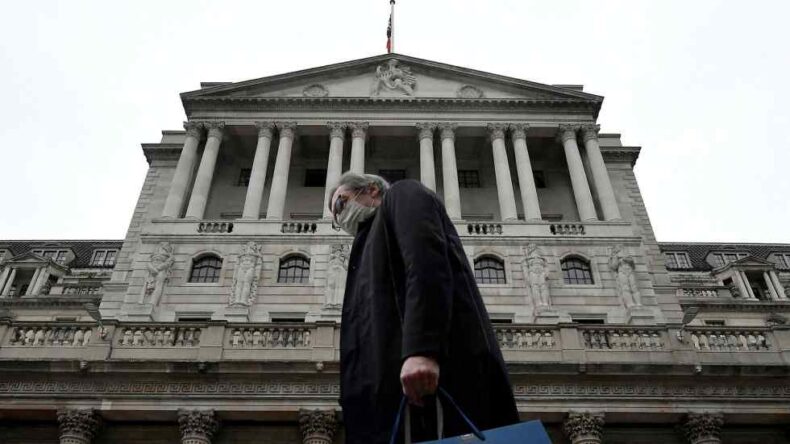UK banks are however in a position to weather the crisis, Bank of England opined. Banks will have to keep more money to ensure they can withstand even a severe economic downturn, it added

UK’s economic outlook has deteriorated materially, says the Bank of England. Rising energy and fuel costs can trigger a recession in the UK. However, British banks are well prepared to face a severe economic crisis, it added.
International forecasters like the IMF and OCED warn that the UK is more susceptible to recession than other western countries. Meanwhile, the Bank of England advised banks to set aside money to tidy up a storm. The bank made these observations in its latest Financial Stability Report. UK banks should set aside 2 % of their assets as buffer, instead of 1 %, it directed.
Increasing the percentage of assets means banks may need an extra 11 billion Pounds of capital The Financial Policy Committee may vary the rate in either direction depending on the pace of the global economy.
“The global economic outlook has deteriorated markedly since the last financial stability report”, said BOE’s governor Andrew Bailey. “The Russian invasion of Ukraine have been a key factor affecting the global outlook.”
Rising Inflation Affects British Households
As energy and fuel prices soar British households face inflationary pressures. According to the BBC, domestic energy bills skyrocketed to 54 per cent (£1,971) for an average household. And this may increase to £2,800 in November and push inflation upto 11 per cent, warn experts.
“Commodity price volatility following the Russian invasion of Ukraine has further exacerbated price pressures facing households and businesses. And this has multiple effects on the financial system,” the Bank of England noted.
Some households will struggle with debts. Some 80% mortgages are on fixed interest rates, and half of these are set to be renewed. And this could push up costs for these households.
“Tighter financial conditions with reduced real incomes will affect debt affordability for households, governments and countries. This would also increase the risks from global debt vulnerabilities,” the BoE stated. However, financial institutions are resilient to debt vulnerabilities despite increasing the pressure on household budgets, it noted.













